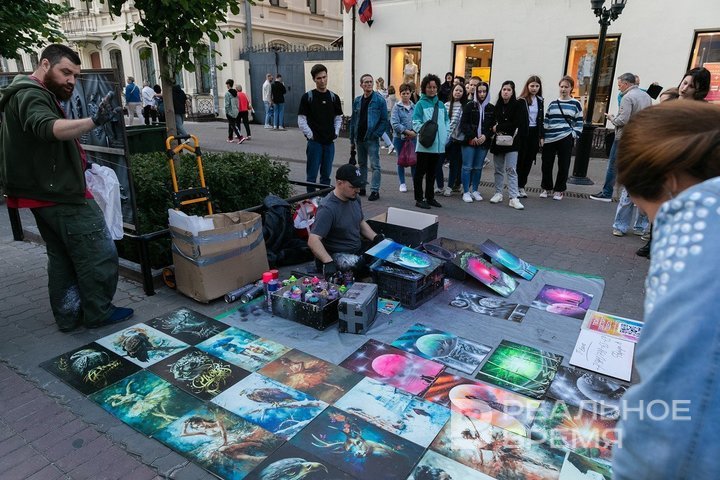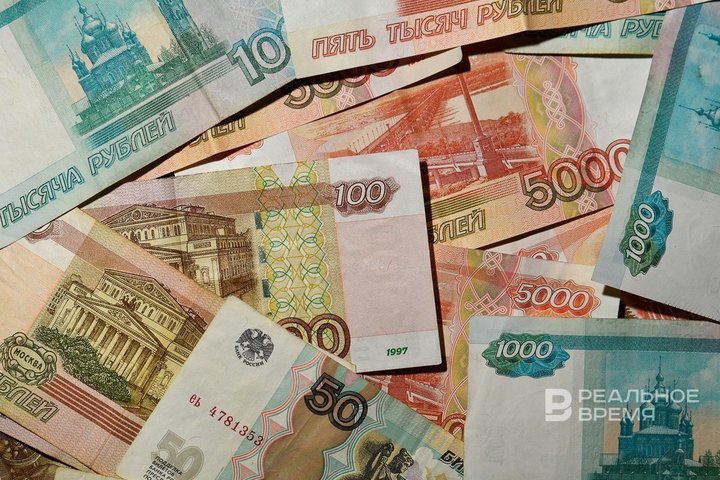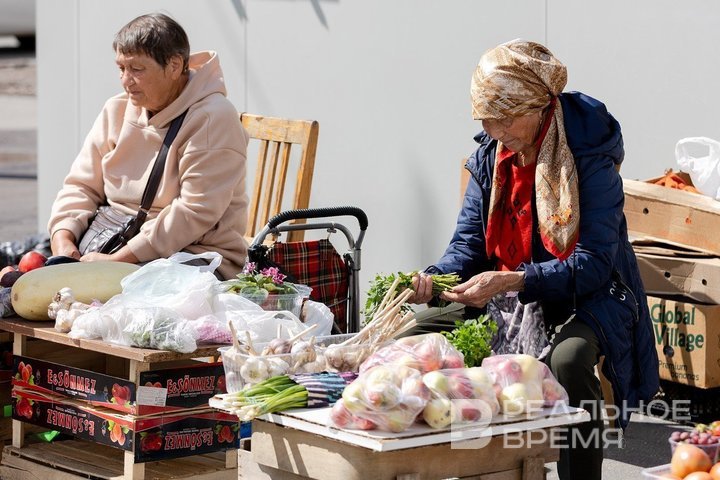‘Do they want to strangle the entire tourism sector?’ — whether fine increase will be able to regulate the work of street businesses
Tatarstan authorities have introduced another bill on restricting street businesses

Tatarstan authorities are making another attempt to regulate the work of street businesses. This time, the bill, which has been submitted to the State Council of the republic, proposes to increase the amount of fines for entrepreneurs operating in unidentified places. At the moment, the project is under preliminary consideration. According to experts interviewed by Realnoe Vremya, if it is approved, things are not going to go well. Read more about the risks of the project under discussion in the material.
A fine increase by five times
A bill has been submitted to the State Council of Tatarstan that could significantly increase fines for businesses that trade or organise entertainment in unidentified places. The relevant draft law was published on the website of the parliament of the republic.
The fine for conducting activities in unidentified places for citizens may increase from 3,000 to 4,000 rubles, for officials — from 10,000 to 40,000 rubles, for legal entities — from 50,000 to 250,000 rubles. For repeated violations, the maximum fine for legal entities will increase to 1 million rubles (now — up to 200,000), for officials — up to 50,000 rubles (now — up to 20,000), for citizens — up to 5,000 rubles.
The explanatory note to the draft notes that the current fines are “insignificant” and ineffective in preventing repeat offenses.

This bill is not the first to combat illegal street businesses. In June, the rais of Tatarstan, Rustam Minnikhanov, signed a law providing for fines for representatives of street businesses for the intrusive offer of goods and services. Violators were obliged to pay 1,000 rubles each.
In August, the control over street businesses was strengthened even more. Then, the resolution of the Executive Committee of Kazan No. 1241 “On approval of the Procedure for the organization and placement of street trade facilities and services in the territory of Kazan” was amended — the body was obliged to monitor compliance with the procedure for organizing and placing street trade facilities, providing services, as well as cultural and entertainment events with the participation of street musicians, artists and animators. They must also take measures in case of violations.
Before that, only the deputy head of the Executive Committee of Kazan had control over the organisation, but the deputy head does not have the authority to bring to administrative responsibility.
“Are we talking about these two unfortunate growth dolls on Baumana Street?”
The fight against illegal street businesses has been underway for several years, chairman of the Trade and Services Committee of the Chamber of Commerce and Industry of Tatarstan Farida Galeeva told Realnoe Vremya. However, it is still unclear what exactly refers to “unidentified places”.
“This issue has already been raised and will definitely continue to be discussed further. When illegal markets in the regions of the republic were closed, citizens asked the same questions, but no answers were received. At that time, they could not really tell us what the unidentified places were and how control would be carried out. These are two big questions," she said.
According to Galeeva, these issues will become the main problem for micro and small businesses:
“Most likely, some part of the small business sector will close. And not because they are malicious violators of the law. They may simply not have time to study the issue, or they do not have such an opportunity, or their approval is overdue. There are a lot of these factors why they can get a fine, besides a direct desire to break the law. The number of small and medium-sized businesses is already falling. It will be a blow that will decrease a number of businesses. A whole tangle of problems will emerge from this.

Galeeva identified two groups of people this bill targets: young entrepreneurs and pensioners who sell products from the garden. Secondly, in her opinion, it makes no sense to fine them — “they sell not from a good life”. And the former are the future of the Russian economy.
“If we are talking about these two unfortunate life-size dolls who walked around Baumana Street, then it's enough to just talk to them. Or do they want to strangle the entire tourism sector?” the speaker asked a question.
She believes that the policy of regulating the microbusiness as a whole is redundant — softer work is needed.
“Everywhere, all over Russia, there are lightweight structures for trade in the centres so that people can sell their souvenirs to tourists," the expert said. “I'm not talking about the European part, they support it there. Why limit businesses? <...> There are many people who want to serve tourists and make their stay in the city more vivid and memorable. We need to support them. Besides, it is often souvenirs. Why warm your hands with souvenirs?”

In addition, such bills deprive aspiring entrepreneurs of the opportunity to develop a business:
“Immediately opening a store of any size — it's millions of rubles: rent, salaries, housing and communal services. A novice entrepreneur does not immediately know if he will be able to run a business. In fact, such laws cut down fields for the growth of such entrepreneurs. They germinate in these fields and in the future provide oxygen to the economy of the whole country. Should they be strangled as soon as they started drawing pictures for tourists? Immediately force them to pay taxes, register, register a legal entity? All this obliges them to pay tens of thousands. What if the entrepreneur fails to sell immediately? How to try yourself and develop if you need to pay immediately?
“They will simply hide from the authorities”
No fines will stop violators, Chairman of the Union of the Chamber of Folk Arts and Crafts of Tatarstan Nury Mustafayev is sure. Such initiatives, in his opinion, are already “completed stages”.
“Increasing fines will not help in any way. They will continue their activities anyway, just hiding from the authorities. These are already completed stages. They've done it before, back at Baumana. Then the police went looking for violators, and then they spat and said: “We will not put one policeman at each intersection," he explained.

Mustafayev believes that increasing fines will not only not help solve the problem, but will also create new ones:
“In the current conditions, when the situation is already very difficult, people survive. They also constantly increase fines and fees. This is not the way to work. The situation will not improve by increasing fines. We're just going to embitter people.
According to the expert, business should not be fined and punished, but the necessary conditions should be created for its development.